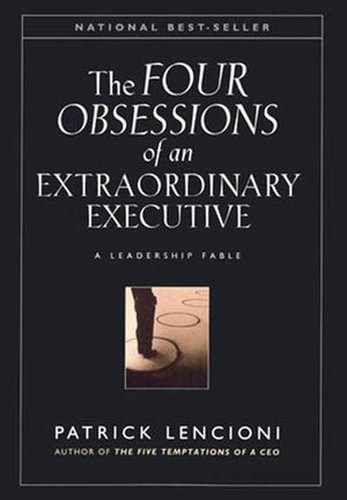RECONNAISSANCE
As part of his desire to understand the mystery of Telegraph’s success, Vince Green occasionally invited business scholars to his staff meetings. Strategy experts, marketing professors, and finance gurus had analyzed Telegraph’s practices, paying particular attention to any areas where Telegraph and Greenwich differed.
Much to the dismay of Green and his team, these experts usually found little real difference between the rival firms’ business strategies. Both companies recruited from the same schools; they paid their employees similar salaries (Greenwich actually paid slightly more); they invested roughly equal amounts of money in marketing; the financial models they used to run their businesses were remarkably similar; even the prices they charged clients and the services they offered were almost identical.
Confounded by the lack of insight gained from these high-priced analysts, Green reluctantly agreed to have a local organizational development professor and consultant compare the cultures of the two companies. On the day that she came to present her findings at the weekly executive staff meeting, Green was in no mood to listen to psychobabble about the importance of employee picnics and holiday parties. He would be pleasantly surprised.
The consultant immediately grabbed the attention of everyone seated around the conference table: “Based on the information available and the research I’ve done, there is so little in common between Greenwich and Telegraph that making a comparison is extremely difficult.”
Amazed by the apparent ridiculousness of the remark, Green was on the verge of bringing the presentation to an early halt. But before he could do so, she continued: “Something about Telegraph’s culture is remarkable, like none I’ve ever seen. Their ability to attract clients and employees, to retain clients and employees, and even to maintain a loyal base of former clients and employees is really very impressive.”
The Greenwich team was caught between two strong emotions: a sense of relief at having finally discovered even a kernel of insight that might help them understand Telegraph, and a wave of disappointment that their competitor had recruited yet another admiring fan.
Green was too driven to let jealousy override his desire to understand his competitor. “So what exactly are they doing?”
Although the consultant could not ascertain the core reasons for the cultural discrepancy, she spent the next hour simply describing various aspects of Telegraph’s culture. “Apparently, there is almost no politics, very little voluntary turnover, and relatively few lawsuits brought by disgruntled employees. Even most of the former employees I spoke to raved about the firm’s culture.”
The executive team listened closely, asked questions, and scribbled notes like college students the day before a final exam.
The consultant eventually concluded her remarks: “Essentially they have an organization that is so sound, so”—she struggled for the right word—“so healthy that it makes them immune to most threats. This, more than anything else they’re doing, seems to be driving their success financially, strategically, and competitively. I wish I knew exactly how they did it.”
Vince spoke for the first time in an hour. “So do I.” Standing now, he waved and forced a smile to say thank you to the consultant and left the room immediately.
No one could have known that he already had an idea.
Now where did I put that phone number?
..................Content has been hidden....................
You can't read the all page of ebook, please click here login for view all page.
